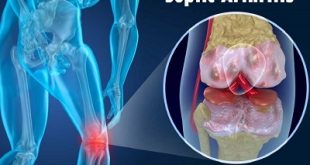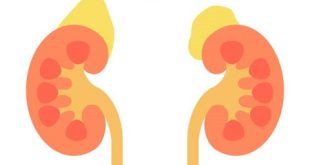Overview
Clostridium Difficile is a bacterium that causes an infection of the large intestine (colon). Symptoms can range from diarrhea to life-threatening damage to the colon. The bacterium is often referred to as C. difficile or C. diff.
Illness from Clostridium Difficile typically occurs after use of antibiotic medications. It most commonly affects older adults in hospitals or in long-term care facilities. In the United States, about 200,000 people are infected annually with C. difficile in a hospital or care setting. These numbers are lower than in previous years because of improved prevention measures.
People not in care settings or hospitals also can develop C. difficile infection. Some strains of the bacterium in the general population may cause serious infections or are more likely to affect younger people. In the United States, about 170,000 infections occur annually outside of health care settings, and these numbers are increasing. The bacterium was formerly named Clostridium difficile.
Pathophysiology
C difficile colitis results from a disturbance of the normal bacterial flora of the colon, colonization with C difficile, and release of toxins that cause mucosal inflammation and damage. Colonization occurs by the fecal-oral route. Hospitalized patients are the primary targets of C difficile infection (CDI), although C difficile is present as a colonizer in 2-3% of healthy adults and in as many as 70% of healthy infants. (Treatment of asymptomatic carriers is not recommended.)
C difficile forms heat-resistant spores that can persist in the environment for several months to years. Outbreaks of C difficile diarrhea may occur in hospitals and outpatient facilities where contamination with spores is prevalent. Although the normal gut flora resists colonization and overgrowth with C difficile, the use of antibiotics, which alter and suppress the normal flora, allows proliferation of C difficile, toxin production, and diarrhea.
Pathogenic strains of C difficile produce 2 distinct toxins. Toxin A is an enterotoxin, and toxin B is a cytotoxin; both are high–molecular weight proteins capable of binding to specific receptors on the intestinal mucosal cells. Receptor-bound toxins gain intracellular entry by catalyzing a specific alteration of Rho proteins—small glutamyl transpeptidase (GTP)–binding proteins that assist in actin polymerization, cytoskeletal architecture, and cell movement. Both toxin A and toxin B appear to play a role in the pathogenesis of C difficile colitis in humans.
More recently, rat studies suggest that C difficile toxin B induces senescence in enteric glial cells (ECGs); investigators hypothesize that EGCs that survive toxin B and acquire senescence potentially cause the development of irritable bowel syndrome and inflammatory bowel disease via persistent inflammation, transfer of senescence status, and stimulation of preneoplastic cells.
The NAP1 hypervirulent strain of C difficile is associated with the most serious sequelae of CDI, causing severe and fulminant colitis that is characterized by leukocytosis, renal failure, and toxic megacolon. The widespread use of fluoroquinolone antibiotics may have played a role in the proliferation of the NAP1 strain. Once rising white blood cell count or hemodynamic instability occurs and fulminant colitis is imminent, subtotal colectomy with end ileostomy is often necessary. Fecal bacteriotherapy and immunotherapy are investigative treatment strategies that have potential for managing patients with severe CDI.
Causes
C. difficile bacteria enter the body through the mouth. They can begin reproducing in the small intestine. When they reach the large intestine (colon), they can release tissue-damaging toxins. These toxins destroy cells, produce patches of inflammatory cells and cellular debris, and cause watery diarrhea.
When the bacteria are outside the colon — virtually anywhere in the environment — they are in a dormant state, or essentially shutdown. This enables them to survive for a long time in any number of places:
- Human or animal feces
- Surfaces in a room
- Unwashed hands
- Soil
- Water
- Food, including meat
When bacteria once again find their way into a person’s digestive system, they “wake up” and can begin to produce infection again. The ability of dormant C. difficile to survive outside the body enables the generally easy transmission of the bacterium, particularly in the absence of thorough hand-washing and cleaning.
Who’s most at risk of a Clostridium Difficile (C. diff) infection?
- diff mostly affects people who:
- Have been taking antibiotics that work against several types of bacteria (broad-spectrum antibiotics) or several different antibiotics at the same time, or those taking long-term antibiotics
- Have had to stay in a healthcare setting, such as a hospital or care home, for a long time
- Are over 65 years old
- Have certain underlying conditions, including inflammatory bowel disease (IBD), cancer or kidney disease
- Have a weakened immune system, which can be caused by a condition like diabetes or as a side effect of a treatment such as chemotherapy or steroid medicine
- Are taking a medicine called a proton pump inhibitor (PPI) to reduce the amount of stomach acid they produce
- Have had surgery on their digestive system
Clostridium Difficile (C. diff) Symptoms
When you have C. diff, the symptoms can range from mild to severe.
Mild symptoms can include problems like:
- Watery diarrhea that happens three to four times a day for several days
- Stomach pain, cramping, or tenderness
In more serious infections, there may be blood or pus in the stool. This can happen because C. diff can cause the colon — also called the large intestine — to get inflamed. When this happens, tissue in the colon can bleed or make pus. Other symptoms of a serious infection include:
- Diarrhea more than 10 times a day
- Severe cramping
- Fever
- Nausea
- Loss of appetite/weight loss
- Dehydration
- Rapid heart rate
If your C. diff infection is severe, you could get severe intestinal inflammation. Your colon could also get enlarged and you could develop an extreme response to infection called sepsis. All of these problems are serious and could send you to the hospital.
If your diarrhea from C. diff is very severe, get medical help quickly. Severe diarrhea can lead to life-threatening dehydration.
Are there any complications?
While most C. diff infections don’t cause any long-term problems, more serious ones can lead to complications, such as:
- Toxic megacolon. Toxic megacolon is a rare condition that causes a grossly enlarged colon. Left untreated, your colon can rupture. This can be fatal.
- Bowel perforation. Damage from the infection or toxic megacolon can cause a hole to form in your intestines.
- Kidney injury. In severe cases of C. diff infection, rapid dehydration can lead to acute kidney injury.
Diagnosis of Clostridium Difficile
A diagnosis of C. difficile infection is based on the presence of:
- Diarrhea
- Other signs and symptoms of C. difficile infection
- Presence of C. difficile in a stool sample
People who have regular, formed stools should not be tested for C. difficile infection. Recent use of antibiotics is not required for making a diagnosis of C. difficile infection.
Stool tests
If C. difficile infection is suspected, your doctor will order one or more laboratory tests of a stool sample. These tests identify either the toxins or strains of the bacteria that produce toxins.
Colon examination
In rare instances, to help confirm a diagnosis of C. difficile infection and look for alternative causes of your symptoms, your doctor may examine the inside of your colon. This test (flexible sigmoidoscopy or colonoscopy) involves inserting a flexible tube with a small camera on one end into your colon to look for areas of inflammation or abnormal tissue.
Imaging tests
If your doctor is concerned about possible complications of C. difficile infection, he or she may order an abdominal X-ray or a computerized tomography (CT) scan, which provides images of your colon. The scan can detect the presence of complications such as:
- Thickening of the colon wall
- Enlargement of the bowel
- A hole (perforation) in the lining of your colon.
Treatment for C. difficile
Your GP will decide whether you need hospital treatment (if you’re not already in hospital). If the infection is relatively mild, you may be treated at home.
If you’re in hospital, you might be moved to a room of your own during treatment to reduce the risk of the infection spreading to others.
Treatment for C. difficile can include:
- Stopping the antibiotics thought to be causing the infection, if possible – in mild cases, this may be the only treatment that’s needed
- Taking a 10 to 14-day course of antibiotics that are known to kill C. difficile bacteria
- Rarely, serious infections may require surgery to remove a damaged section of the bowel
- difficile infections usually respond well to treatment, with most people making a full recovery in a week or two. However, the symptoms come back in around 1 in 5 cases and treatment may need to be repeated.
Looking after yourself at home
If you’re well enough to be treated at home, the following measures can help relieve your symptoms and prevent the infection spreading:
- Make sure you finish the entire course of any antibiotics you’re prescribed, even if you’re feeling better
- Drink plenty of fluids to avoid dehydration and eat plain foods such as soup, rice, pasta and bread if you feel hungry
- Take Paracetamol for tummy pain or a fever
- Don’t take anti-diarrhoeal medication, as this can stop the infection being cleared from your body
- Regularly wash your hands and contaminated surfaces, objects or sheets (see How to stop C. difficile spreading)
- Stay at home until at least 48 hours after your last episode of diarrhoea
Your GP may contact you regularly to make sure you’re getting better. Call them if your symptoms return after treatment finishes, as it may need to be repeated.
Can Clostridium Difficile infections be prevented?
There are steps you can take to try to prevent getting or spreading C. diff:
- Wash your hands with soap and water after you use the bathroom and before you eat
- If you have diarrhea, clean the bathroom that you used before anyone else uses it. Use bleach mixed with water or another disinfectant to clean the toilet seat, handle, and lid.
Health care providers can also help prevent C. diff infections by taking infection control precautions and improving how they prescribe antibiotics.
 Diseases Treatments Dictionary This is complete solution to read all diseases treatments Which covers Prevention, Causes, Symptoms, Medical Terms, Drugs, Prescription, Natural Remedies with cures and Treatments. Most of the common diseases were listed in names, split with categories.
Diseases Treatments Dictionary This is complete solution to read all diseases treatments Which covers Prevention, Causes, Symptoms, Medical Terms, Drugs, Prescription, Natural Remedies with cures and Treatments. Most of the common diseases were listed in names, split with categories.







